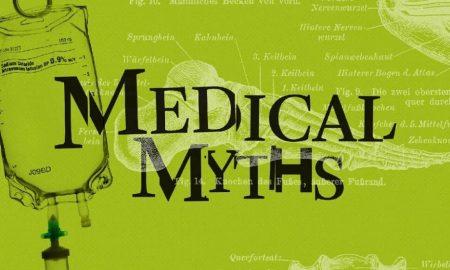
How Your Medical Conditions Can Influence Your Driving Skills

Everyone knows that alcohol consumption can have a negative impact on your vehicle driving capabilities, but that is not the only thing which does. There are a few medical conditions that can negatively influence your driving abilities, distorting your ability to judge certain driving scenarios or create an impediment to your vision or eye range, thus making driving both difficult and dangerous.
Some people can barely drive at night without their glasses and request others to drive instead. This is because their eye vision fails to cope with the headlights of oncoming vehicles that are driving on the road.
In fact, according to research, if a person is suffering from a medical condition which significantly compromises main faculties such as one’s eyes, nervous system, lungs, heart, ears, muscles, and skeletal system, then this can obviously seriously hinder his or her ability to drive a vehicle. Apart from this, organ damage of any kind can also influence a person’s ability to drive a vehicle.
Many doctors suggest that any condition that impacts your nervous system, including the network of nerves coordinating with your body and helping it fall sleep, helping it remain wakeful, and helping with motor movements, all impact your ability to drive a vehicle.
If a person is sleep deprived, for example, he will not be able to drive a car with perfection. He will also have a high risk of falling asleep while driving, which obviously can lead to fatal accidents.

There are a few medical conditions that can negatively influence your driving abilities, distorting your ability to judge certain driving scenarios or create an impediment to your vision or eye range, thus making driving both difficult and dangerous
Substance Abuse Or Alcohol Consumption
Mind-altering substances and alcohol have the ability to hamper proper functioning of the brain. Substance abuse can disturb active mental faculties, disallowing a person from thinking with a clear head and leading them to easily make wrong judgments on the road. Common side effects because of using excessive drugs include dehydration, sedation, hypoglycemia and dizziness, and because of these side effects, a person’s ability to drive carefully can get impaired.
Epilepsy Can Be Fatal
People suffering from epilepsy are at a constant risk of getting seizures, no matter where they are or what they are doing. Seizures can obviously be very dangerous if the sufferer is behind the wheels as in that case their occurrence can cause fatal accidents.
Those who suffer frequent seizures are recommended by doctors not to drive because of a heightened chance of an accident. While experiencing seizures, you can feel complete lack of control over your motor skills and hence a complete inability to handle the vehicle.

Substance abuse can disturb active mental faculties, disallowing a person from thinking with a clear head and leading them to easily make wrong judgments on the road
Dementia And Alzheimer’s Disease
Anyone diagnosed with Alzheimer or dementia should get medical treatment on a timely basis to contain the impact of the diseases as both conditions become worse as time passes. Common symptoms which patients of either Alzheimer’s or dementia experience include loss of memory, reduced cognitive skills, and also a reduction in visual and spatial orientation which can be very dangerous especially when a person is driving.
A less dangerous impact of dementia is that a patient can also forget the correct routes to the destination and can get lost easily.
Glaucoma Can Affect Driving
A clear vision is very crucial if you wish to drive with accuracy and without putting your life (and those of the passengers) in danger. Glaucoma is a condition which puts increased pressure on the eyes, ultimately causing damage to the retina. Anyone suffering from glaucoma eventually loses the ability to make precise decision with respect to whether he or she should overtake another vehicle from the side.
Medical Conditions Related to The Heart
If you are suffering from coronary heart disease, then you may develop a continuous risk of encountering heart circulation problems. Heart conditions usually become worse because of accumulation of fat or blockage of arteries. The existence of hypertension or consumption of addictive substance abuse such as drugs can also cause anomalies in the working of the heart.
Those people who are suffering from chronic renal diseases or thyroid disorders are also at a higher risk of developing heart problems. Unfortunately, medicines which are usually taken to treat these heart medical conditions can also cause side effects which include dizziness, blurred eye vision, and respiratory problems, all of which can also impair a person’s ability to drive properly.
More in Medical Conditions
-
Worried About Diabetes? Here Are Some Common Myths
There are several myths about diabetes that are frequently reported as facts. Diabetes misrepresentations can sometimes be harmful, leading to an...
June 29, 2023 -
Many Patients Pay Their Medical Costs Out Of Their Pockets – Even With Insurance
With rising inflation, it has become difficult for people to even fulfill their basic necessities. They are more concerned about how...
June 6, 2023 -
What Is The Right Weight For Kids And How To Gain Weight Healthily
Keeping your child happy and healthy is the primary concern of every parent. Parents usually focus on providing their young ones...
May 12, 2023 -
Thyroid Disorders in Children: What Parents Need to Know
Thyroid disorders are not limited to adults; they can also affect children. The thyroid gland produces hormones that play a crucial...
April 29, 2023 -
Should Doctors Attend To Patients With ‘Do Not Resuscitate Tattoos’?
Doctors at the University of Miami hospital were confronted with a dilemma when a 70-year-old unconscious man with a tattoo “do...
April 3, 2023 -
Your Antidepressant May Not Work If You Keep Doing This One Thing
People use social comparison to measure their self-worth. Social comparison has been in existence since time immemorial, and it is as...
April 1, 2023 -
Pro Tips on Preventing Hair Breakage While Keeping Your Hair Moisturized at Home
Every one of us is thinking a lot about how to forestall hair breakage and keep them moisturized at home. Since...
March 22, 2023 -
Planning to Travel After Retirement? This is the Best Medicare Coverage for You
Does Medicare insurance go with you once you are out of the country? It’s currently open enrollment period, and while planning...
March 14, 2023 -
Lumeris, A Medical Insurance Provider, Expands Into 5 New States & 44 Counties
Lumeris is one of the leading insurance providers in the United States. For years, the Saint Louis, Missouri-based firm has been...
November 8, 2022















You must be logged in to post a comment Login